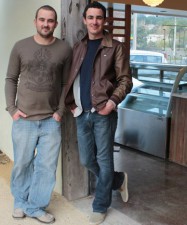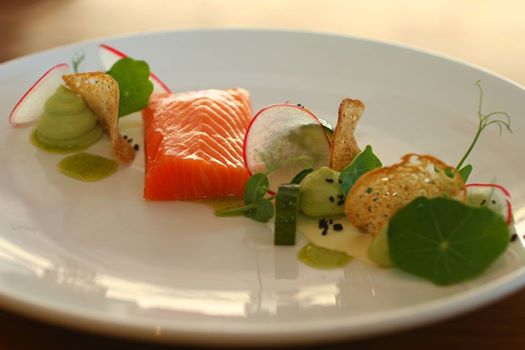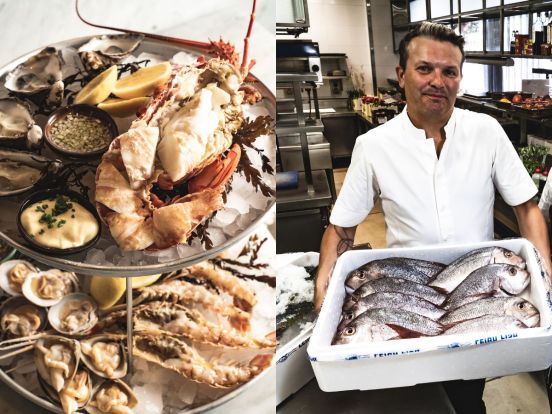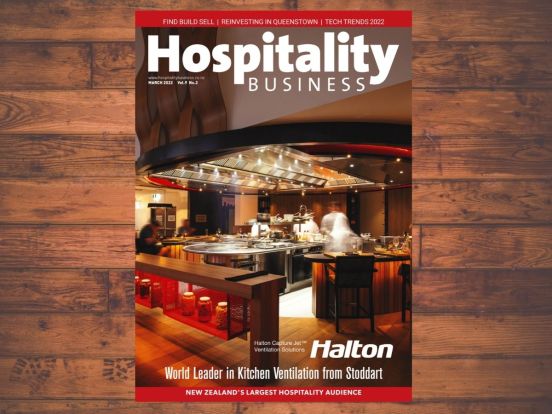 When Aaron Wagstaff and Todd Cameron grew up at Waikanae Beach there was only a Four Square Store. So they headed to the big smoke, Wellington, and trained in hospitality. Later they did the customary OE, cooking, waiting tables and pouring pints in London, Europe and California. When they returned to Waikanae it was still pretty quiet – but it was home – so they set about building their own hospitality package down at the beach.
When Aaron Wagstaff and Todd Cameron grew up at Waikanae Beach there was only a Four Square Store. So they headed to the big smoke, Wellington, and trained in hospitality. Later they did the customary OE, cooking, waiting tables and pouring pints in London, Europe and California. When they returned to Waikanae it was still pretty quiet – but it was home – so they set about building their own hospitality package down at the beach.
Six years on and what they’ve created encompasses a blend of food, beverage and ambience; European tradition and contemporary modern but mostly that homely Kiwi – relax with a beer at the beach and eat what’s growing in your garden – kind of concept. Yes, they actually do have a garden, 300 square metres of it behind their Longbeach Pub, plus a bakery, and very soon a brewery – and they employ nearly 30 locals.
It’s a cliché, but gastro pub probably best describes our Longbeach Pub, says chef Aaron Wagstaff. “We were looking for a pub-style restaurant, where we make everything from scratch, that’s our core belief. Nothing gets brought in – sauces, ice creams, they are all made here.
“We also make our own bread and pastries. We opened the Olde Beach Bakery two years ago. Our baker, French-born and trained Thierry Himbert, creates amazing baguettes and pastries.”
They also make their own beer, North End. So far they’ve been contract brewing with brewer Keiran Haslett-Moore. Their new North End brewery will open in Waikanae within months and a brewery restaurant, where diners can watch the beer being made, will follow.
Each business makes the others’ stronger. Wagstaff says their Longbeach products go to Olde Beach and vice versa. “Having multiple hits helps: the beer, the bakery, the coffee and the meals. We pretty much cater for everyone and we’re supported really well by the locals. That’s what happens when you create a good pub, it becomes like the local’s front lounge.”
One key is being open all the time, he adds. “Being available is one of our strong points.”
The garden has added a whole new dimension, says Wagstaff. “We now supply 25 per cent of our own vegetables; we’re aiming for 50 per cent in summer. We grow a lot of specialised products, for example different coloured broccolis, pita pica chillies and tear drop onions that you wouldn’t get from a mainstream supplier.”
“It’s a journey growing your own veges. It becomes part of the way you live, you start composting your waste and the staff feel good about doing it. An accountant might look at it and scratch his head but it all comes together – it gives us good products; it’s great word-of-mouth advertising and it seems like we’re living truly season to season. That’s the way it should be.”
Feel good factors are important when it comes to staff. In a small place like this finding quality staff is a challenge, once you get them you have to hang onto them, says Cameron. “We feed our staff each day. They sit down at 4.30 and have a meal together, sometimes it might be tasting things the young chefs are trying out,” he adds.
Looking ahead, the guys feel positive. The population here is getting younger because they can’t afford houses in Wellington, says Wagstaff. “With the Kapiti Expressway coming through that’s going to help. And it’s so much fun. We’ve both worked for fancy restaurants, we wanted to tone it down a bit and make what we do suit a wider market. We’re doing what we love.”








